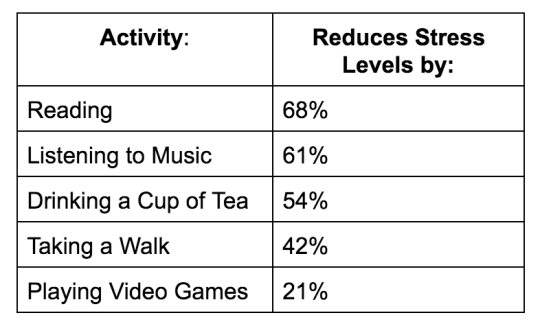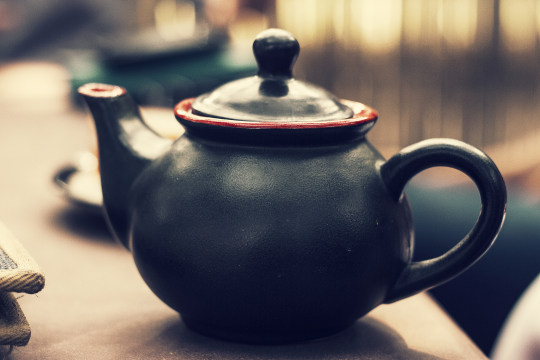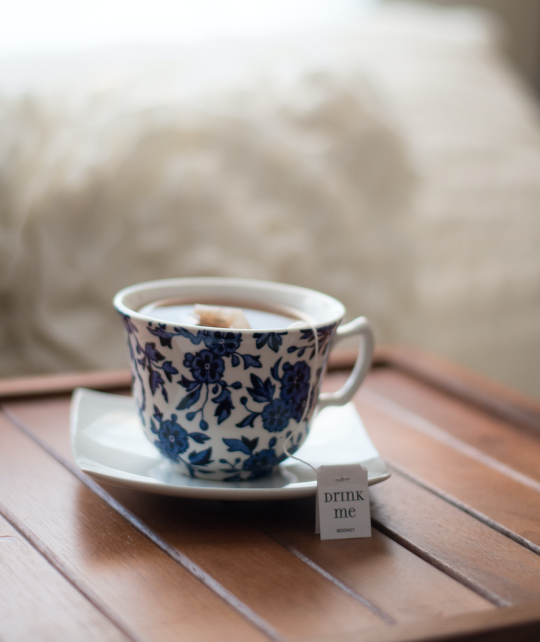How To Reduce Stress in Six Minutes: There’s No Better Way Than A Book
Reading beats listening to music, tea, and taking a walk. Scientifically proven ways to reduce your stress levels.

A Solution for Stress: Facts about Fiction
According to the World Health Organization, over 450 million people experience stress every year. Whether it’s from work, school, or family–stress is something we all deal with. So, the question is: how do we best manage it? Your brain can’t function at maximum capacity at all times. We need down time to rest our cognitive capabilities and return to peak performance.

As it turns out, reading literature is among the very best ways to get that much needed down time. The New Yorker reports that reading has the power to “put our brains into a pleasurable trance-like state,” and brings the “same health benefits of deep relaxation and inner calm.” The article goes on to state that, readers experience better sleep, lower stress levels, higher self-esteem, and lower rates of depression than their non-reading counterparts.

Reading even beats out other methods of stress relief like taking a walk, listening to music, or playing video games. Data from a 2009 study at the University of Sussex indicates that within six minutes of silent reading, participants’ stress was reduced by up to 68%. Their heart rates slowed and tension in their muscles decreased. Psychologists believe that reading has the power to distract the mind and ease the body’s stress.
Keep Your Cool: Heat Your Kettle

What’s a good book without a cup of tea? Tea has also been proven to de-stress people after challenging tasks, as a study by the University College London reports. It found that people who drank tea four days a week for six weeks had a 20% lower level of the stress hormone cortisol in their blood after a stressful event than the control group who drank placebo tea for the same period. In other words, the stressful situations induced the same stress levels in both groups, but the tea-drinkers recovered more quickly than those who did not drink tea regularly. While the study tested the effects of black tea, there are a myriad of teas that can produce anti-anxiety effects.
Relaxing Teas: 3 Brews to Bring You Balance

Chamomile Tea: Chamomile has been used as a medicinal agent for centuries. But recent data indicates that chamomile tea may be particularly helpful in the treatment of generalized anxiety disorder (GAD). Along with aiding in sleep and reducing stress, chamomile includes an abundance of beneficial phytochemicals, which are natural antioxidants and anti-inflammatory agents.
Green Tea: Of all teas, green tea contains the highest concentration of polyphenols – powerful antioxidants that have been shown to reduce your risk of degenerative disease. It not only jumpstarts your metabolism and lowers your risk of Alzheimer’s and Parkinson’s, green tea also contains L-theanine, an amino acid that increases the activity of GABA (an inhibitory neurotransmitter), producing an anti-anxiety effect.
Ginger Tea: Along with improving digestion and circulation, ginger tea’s anti-inflammatory properties can also help relieve muscle soreness and tension according to a 2010 study published in the Journal of Pain. It is also incredibly effective at lowering elevated blood pressure, a potentially dangerous side effect of high stress levels.
Here is an excellent online stress test you should do for yourself and next time you’re feeling frazzled, sensing stress, or noticing nervousness–crack open a book and indulge in a cup of tea.
Most importantly, always remember to Treat YourShelf to something special.








tumblr author
Author